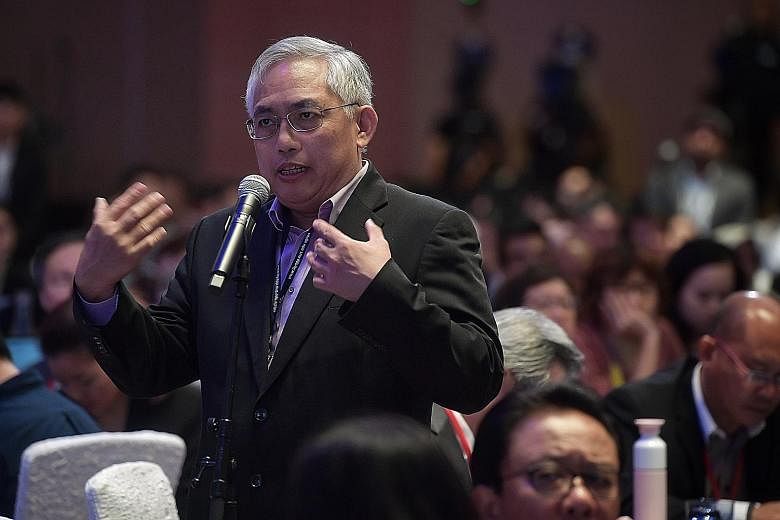Sharing data is not the panacea to all policy issues, Trade and Industry Minister Chan Chun Sing said at an Institute of Policy Studies (IPS) conference yesterday.
Having the people's trust and ensuring objective interpretations of the data are also important, he said in response to a call from People's Power Party chief Goh Meng Seng for the Government to provide more data for fruitful policy debates.
"If we go in with preconceived ideas on what the data should tell us and we have a confirmation bias, we will go and interpret it in a (certain) way," said Mr Chan.
The issue of public access to data has been in the spotlight after Mr Chan sparred with Workers' Party chief Pritam Singh in Parliament earlier this month over how new jobs are distributed among Singaporeans and permanent residents (PRs).
Referring to this issue yesterday, Mr Chan said the data shows slightly better employment figures for PRs, which some might say support the interpretation that the Government "doesn't care about the citizens".
"The other interpretation is, actually we have pre-selected the PRs. If the PRs are unemployed, it will be very difficult for them to get PR (status) unless they have strong family ties here," he said.
He also cited a "recent example", where data was available but a graph was truncated. He was referring to a correction direction issued under the fake news law by the Manpower Ministry, which said a graphic on Singapore's population policy used by the Singapore Democratic Party online was misleading.
While having more data helps, it also has to be framed objectively, he said, adding: "If people don't trust you, you can give as much data as you want, and you will not win over the hearts or the minds of the people."
The minister also listed three wishes he has for Singapore's political system in a wide-ranging dialogue at the IPS' Singapore Perspectives conference.
His first wish was to have more in-depth discussions with Singaporeans on challenges and policy issues, he said.
Recalling productive closed-door sessions with his own staff and other Singaporeans, he said the question was how to scale up such sessions, which may involve issues that cannot be as freely discussed with non-Singaporeans.
He clarified in response to a question from an audience member that these issues included defence and security, foreign affairs and geopolitics, and Singapore's economic strategy.
"There are many things that we discuss in public and that I think would benefit a lot from having (opinions of) foreigners," he said, adding that Singapore's foreign friends provide counsel and help check for "blind spots".
His second wish was for Singaporeans to become less inward-looking and be more cognisant of the external environment.
Citing the $15.2 billion in investments secured by the Economic Development Board announced last week, he said that there were some who questioned the investments and whether they were too much.
"What lies underneath this set of questions is perhaps a lack of appreciation of the external environment we are operating in. It is not as if we have a choice to pick one investment and not another investment," he said, adding that Singapore loses some investments to competitors.
Third, Mr Chan said he hopes Singapore will continue to maintain the ethos of making decisions not just for the current generation, but for future generations as well.
Few societies can leave behind something for the next generation or finance infrastructure without borrowing or taxing heavily, he noted, adding that issues like climate change, fiscal reserves and even jobs cut across generations.
"We need to find a mechanism whereby our generation makes decisions not just for the sole purview of taking care of this generation."


